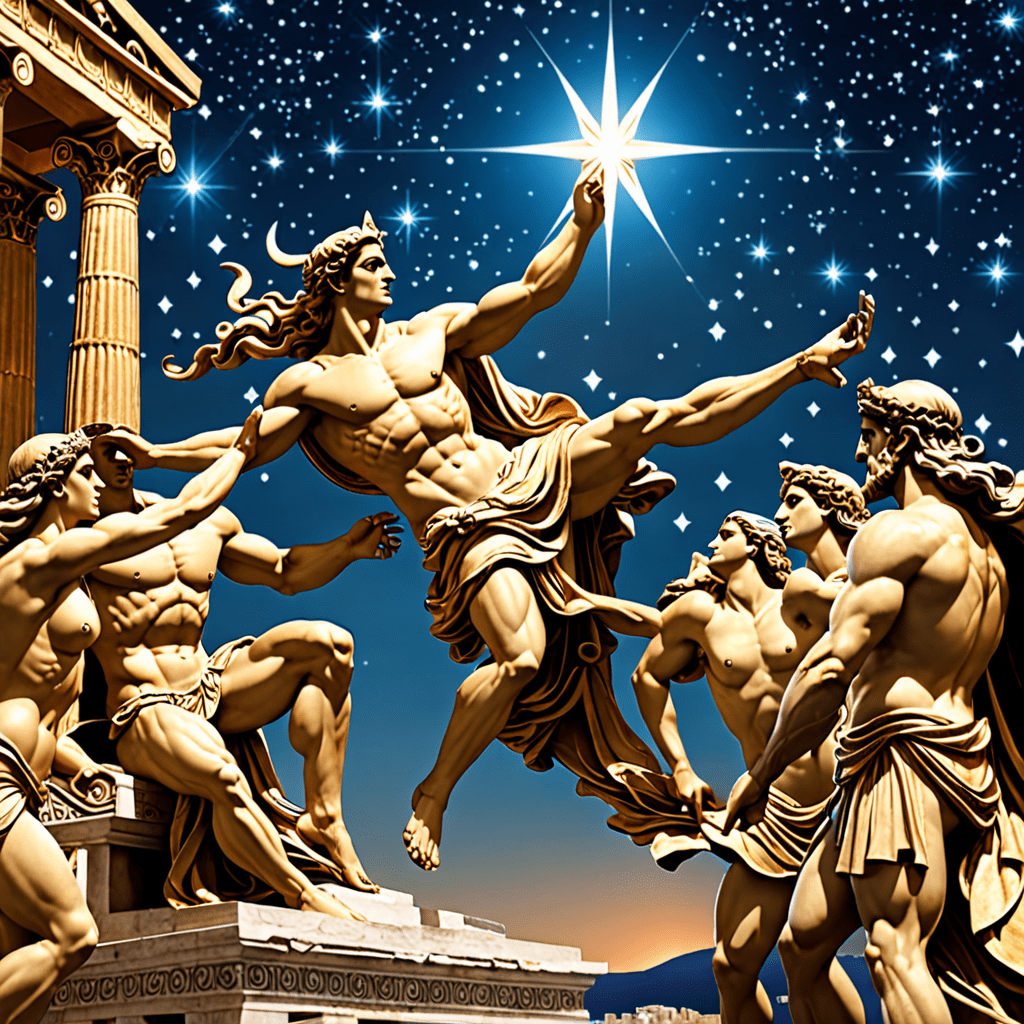The Symbolism of Stars in Greek Mythology
In Greek mythology, stars hold significant symbolism and play essential roles in various myths and legends. Let’s explore the fascinating world of stars in Greek culture.
1. Why are Stars Important in Greek Mythology?
Stars were crucial in Greek mythology as they were often connected to divine beings and heroes. The ancient Greeks believed that the gods and goddesses resided in the heavens, with stars serving as a manifestation of their presence. Additionally, the Greeks associated specific star formations with myths and heroic tales, attributing them to the deeds and journeys of legendary figures.
2. The Role of Constellations in Greek Myths
Constellations, which are patterns of stars in the night sky, played a vital role in Greek myths. Gods, goddesses, and mythical creatures were often placed among the stars as constellations to immortalize their stories. For example, the constellation Orion is linked to the legendary hunter Orion, and the Pleiades star cluster represents the seven sisters pursued by the hunter Orion in mythology.
3. Connections Between Stars and Greek Deities
Various Greek gods and goddesses were associated with specific stars or planets. For instance, the planet Venus was connected to Aphrodite, the goddess of love and beauty. Similarly, the planet Mars was linked to Ares, the god of war. These celestial connections emphasized the divine influence and powers of the deities over different aspects of life.
4. Symbolism of Shooting Stars and Comets in Greek Culture
In Greek mythology, shooting stars and comets were often seen as omens or messages from the gods. These celestial events were believed to signify important events on Earth, such as the birth of a hero or the onset of a war. Ancient Greeks observed these phenomena with awe and interpreted them as signs of the gods’ will.
In conclusion, stars hold immense symbolism in Greek mythology, representing the divine, heroic deeds, and mystical connections between gods and mortals. Exploring the tales woven around the stars in Greek culture adds a layer of richness and depth to our understanding of ancient mythologies.
Frequently Asked Questions about the Symbolism of Stars in Greek Mythology
What do stars symbolize in Greek mythology?
Stars in Greek mythology are often associated with divine beings, representing the souls of heroes or gods who were placed in the heavens after their death. They are seen as eternal and powerful symbols of guidance, hope, and destiny.
Which Greek gods and goddesses are linked to stars?
Several deities in Greek mythology have connections to stars. For instance, Asteria, the goddess of nocturnal oracles and falling stars, transformed herself into the island of Delos to escape the amorous advances of Zeus. Additionally, the goddess Nyx, who personifies the night, is often depicted adorned with stars in her hair.
What is the significance of constellations in Greek mythology?
Constellations played a vital role in Greek mythology, giving rise to various myths and stories. For example, the constellation of Orion is linked to the great hunter Orion, who was placed among the stars by Zeus after his death. These formations served as a way for the ancient Greeks to immortalize their heroes and gods.





